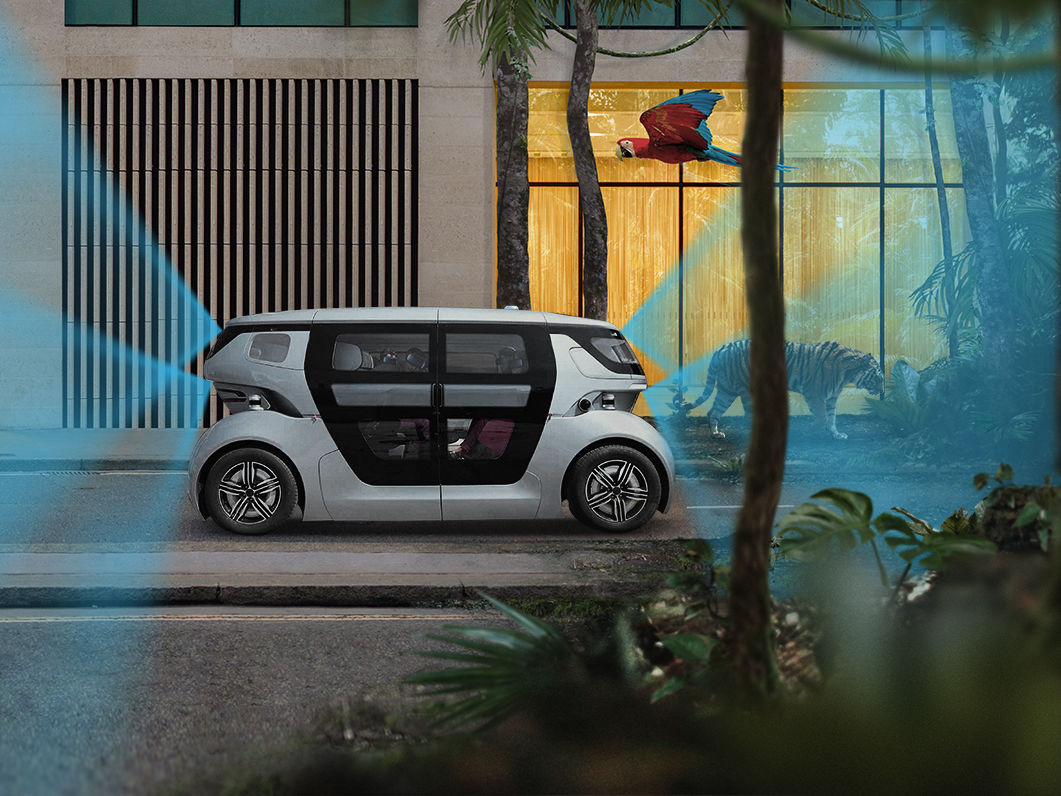Terranet and holoride explore auto XR
- November 8, 2021
- William Payne

Swedish ADAS developer Terranet AB has partnered automotive Extended Reality (XR) specialist holoride to develop new applications for Terranet’s VoxelFlow technology in autonomous vehicles.
Munich-based holoride is building an immersive in-vehicle media platform by enabling processing motion and location-based data in real-time. Terranet will now integrate holoride’s technology into Swedish carmaker NEVS’ urban mobility system, PONS. holoride’s content adjusts to the motion and route of the PONS mobility system and other vehicles and syncs with the passenger’s journey.
holoride has created a media category for moving vehicles which it calls Elastic Content, which the company says allows for a novel approach in automotive content creation.
The integration of Terranet’s fast object detection and classification system VoxelFlow will help to enhance real-time, in-car XR experiences by incorporating aspects of sensor tech software for holoride developers. Content creators will be able to embed geospatial context and real-world road objects into virtual playgrounds. Fusing Terranet’s game horizon concept with holoride’s Elastic SDK should reduce design time and resources required to create virtual environments.
Users will experience an immersive experience reflecting their surrounding environment. When travelling to a European capital, passengers will experience the city and its history in a city tour in one of NEVS’ self-driving vehicles. The experience will combine what passengers see through the windows with a VR/AR overlay incorporating the same places and sites in the historical context of the previous century.
The three companies, holoride, Terranet and NEVS, are aiming to provide autonomous vehicle passengers a new XR experience. Terranet led holoride’s Series A funding round earlier this year and joined existing shareholder Audi as strategic investors. The business collaboration with holoride opens a new application for Terranet’s VoxelFlow technology by reusing 3D event data for XR applications, such as augmented reality (AR) and virtual reality (VR).
“We are enthusiastic about holoride’s mission to add thrill to every ride. In-vehicle entertainment will become even more important along with a higher penetration of self-driving cars,” said Terranet CTO Nihat Küçük. “Terranet’s contribution to a ride in a virtual world is to stream real-world objects – which we see in VoxelFlow – into the VR platform in real-time. With our partner holoride we will disrupt the in-vehicle gaming experience, injecting static and dynamic objects which we detect and classify using Terranet’s neural network model and machine learning algorithms.”





